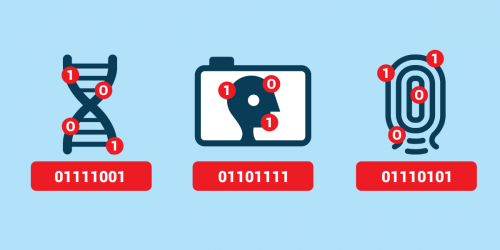FBI's Next Generation Identification Biometrics Database
EFF has been closely following FBI's work to build out its Next Generation Identification (NGI) biometrics database. NGI expands the FBI’s IAFIS criminal and civil fingerprint database to include multimodal biometric identifiers such as iris scans, palm prints, face-recognition-ready photos, and voice data, and makes that data available to other agencies at the state and federal levels. As part of our focus on NGI, we've sent out Freedom of Information Act and Public Records Act requests to the FBI and several state agencies for information on how NGI works and how the states share data with NGI. We've also blogged and testified on facial recognition before the Senate Subcommittee on Privacy, Technology and the Law. Those records, the testimony, and the blog posts are linked below. We'll report on and post new records here as we receive them.
Updates
-
When EFF launched a campaign last year to encourage the public to help us uncover police use of biometric technology, we weren’t sure what to expect. Within a few weeks, however, hundreds of people joined us in filing public records requests around the country.
Ultimately, dozens of...
-
San Francisco—The FBI, which has created a massive database of biometric information on millions of Americans never involved in a crime, mustn’t be allowed to shield this trove of personal information from Privacy Act rules that let people learn what data the government has on them and restrict how it...
-
-
EFF and 44 Other Organizations Call for More Time to Respond
Since 2008, the FBI has been assembling a massive database of biometric information on Americans. This database, called Next Generation Identification (NGI), includes fingerprints, face recognition, iris scans and palm prints—collected not just during arrests, but...
-
Pages






